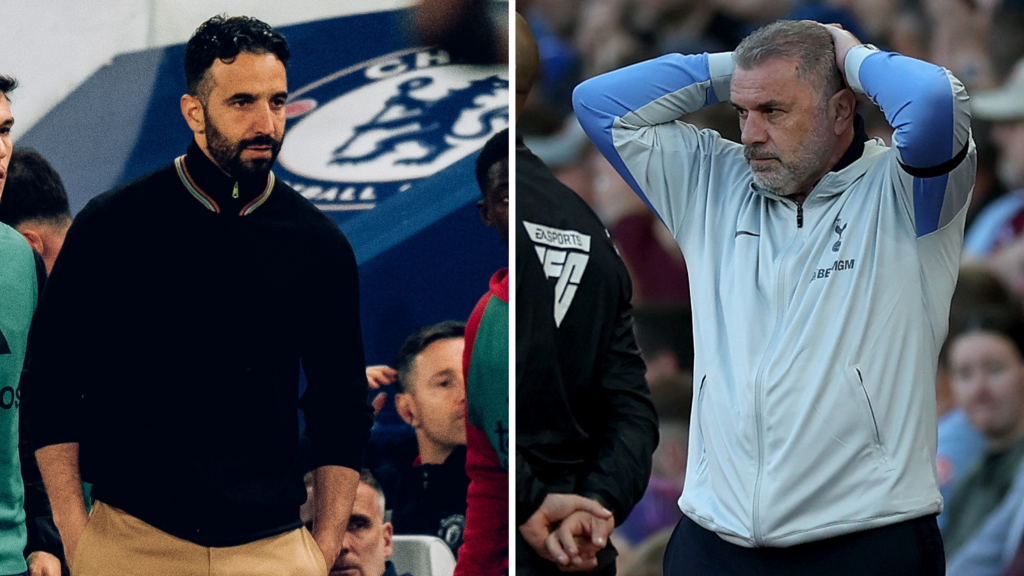Manchester United and Tottenham Hotspur will contest the Europa League final in Bilbao on Wednesday, May 21st.
Both clubs aim to conclude disappointing domestic seasons with a major European triumph and a coveted Champions League berth.
Their respective struggles, reflected in their bottom-half league standings, underscore the significance of this final.
Penultimate Premier League defeats offered no pre-final momentum; Manchester United suffered a 1-0 loss to Chelsea (their 18th defeat), while Tottenham fell 2-0 to Aston Villa (their 21st loss).
But with all focus shifting to the Europa League, how do the teams approach this decisive match?
Tottenham risks finishing just above the relegation zone.
Friday’s losses extended both teams’ domestic woes. Tottenham’s 25 losses across all competitions mark a club record, while Manchester United’s 18 league defeats are their most since the 1973-74 relegation season.
United’s eight-game winless streak (D2, L6) is their longest since an 11-game stretch in 1989-90. Spurs, meanwhile, have won just one of their last 11 Premier League games (D2, L8) and have conceded in each of their last 12 league matches – their longest run without a clean sheet since 2010.
However, both sides’ European form contrasts sharply with their domestic struggles, boasting unbeaten runs in their last five Europa League games (winning four).
Chelsea’s Cucurella Sinks Man Utd
Villa Defeats Spurs, Climbs to Fifth
Team selections offered insight into both managers’ final strategies. Manchester United’s Erik ten Hag fielded a strong XI including Bruno Fernandes, while Tottenham’s Ange Postecoglou rested key players like Vicario, Solanke, Johnson, Richarlison, and Porro.
Ten Hag prioritized match fitness over rest, recalling regulars after resting some against West Ham. Goalkeeper Andre Onana, absent against West Ham, returned against Chelsea.
Ten Hag emphasized prioritizing competitive sharpness: “We have five days to prepare for the final… two days to recover, then two days to prepare,” he told BBC Sport.
Tottenham’s superior head-to-head record this season (wins in both Premier League encounters and the Carabao Cup) and goalscoring prowess (63 league goals, compared to United’s 50) provide confidence.
However, defensive vulnerabilities are evident: Tottenham conceded 61 league goals, Manchester United 54. Son Heung-min’s return to form, after injury, offers a boost for Tottenham.
Postecoglou confirmed Son’s availability and improved rhythm. Conversely, Manchester United’s Rasmus Højlund’s struggles (three goals in 15 appearances) remain a concern, prompting criticism from Roy Keane.
Ten Hag’s risk of fielding a strong side paid off; Tottenham faces concerns after Pape Sarr’s first-half injury against Villa, though Postecoglou deemed it precautionary. Existing injuries to Kulusevski and Maddison further complicate Tottenham’s situation.
Injuries significantly impacted both clubs. According to PremierInjuries.com, Tottenham experienced the third-worst injury crisis in the Premier League (1414 days lost, 38 injuries), with United fifth (1229 days lost, 30 injuries). Brighton’s high injury count (1862 days, 44 injuries) did not prevent their successful season.
Despite poor domestic form and injuries, cup finals offer unique opportunities. Manchester United seeks its second Europa League title this decade and fifth major European trophy. Roy Keane favors United due to their experience in major finals.
Jamie Redknapp sees the match as evenly matched, highlighting Tottenham’s chance to rewrite their narrative. A victory would solidify Ange Postecoglou’s position, potentially saving his job.
Listen to the latest Football Daily podcast
Get football news sent straight to your phone

